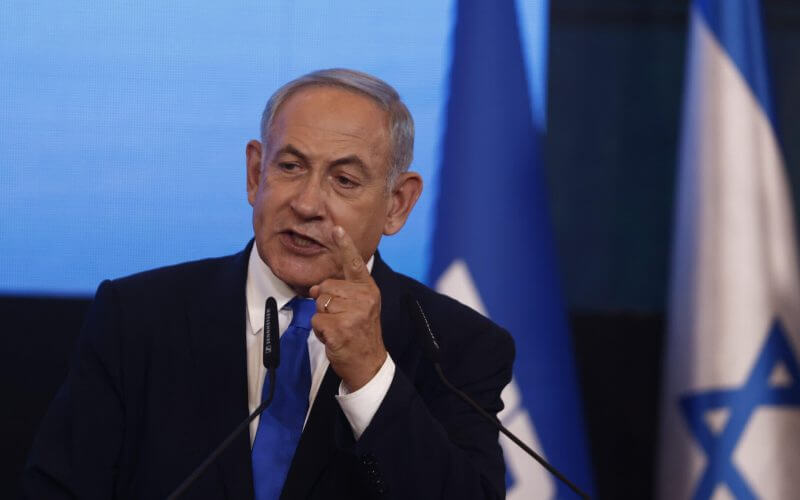Incoming Israeli Prime Minister Benjamin (Bibi) Netanyahu said Wednesday that a normalization agreement between Israel and the Kingdom of Saudi Arabia is within reach and would effectively "end the Arab-Israeli conflict." The latest statement from the Prime Minister comes as the new conservative coalition vows to confront terrorism in the Middle East and strengthen alliances with Arab allies.
Speaking from Israel at an online event hosted by Temple Emanu-El's Streicker Center, Netanyahu reminded an online audience of nearly 300 people that the Abraham Accords were negotiated by the former Trump administration when he was Israel's prime minister.
The Accords normalized economic and military relations between Israel, the United Arab Emirates (UAE), Bahrain, Morocco, and Sudan.
"It didn't happen without Saudi approval because those countries wanted to know what their big neighbor Saudi Arabia thought about it," Netanyahu said. "I can assure you it wasn't negative."
The incoming prime minister noted that as a prelude to the Abraham Accords, the Saudi Arabian government permitted aircraft to fly over its airspace while coming to and leaving Israel.
Following his Likud party's success in last week's elections and alliance with other conservative parties in Israel, Netanyahu is expected to lead the next Israeli government. Experts familiar with Netanyahu’s policies believe that the incoming prime minister will focus on combatting terrorist groups like Hamas and Hezbollah and possibly conducting preemptive strikes against the Islamic Republic of Iran.
During the Obama and Trump administrations, Netanyahu and his government sought to strengthen Israel's military and economic cooperation with Arab nations like Egypt, Jordan, UAE, Bahrain, Morocco, Sudan, and Saudi Arabia. While Saudi Arabia does not have an official peace cooperation with Israel, the two governments have engaged in behind-the-scenes collaboration ranging from intelligence to military and economic trade. Under Crown Prince Mohammed Bin Salaman (MBS), the Saudi Arabian government called Prime Minister Netanyahu, with both leaders discussing defense technology.
After signing the Abraham Accords, Israel and its new Arab allies have opened up each other's economies, engaging in trade, medical research, and private business development. Under Netanyahu's governance, the Israeli military has provided training and military technology to its allies to deter the Islamic Republic and its activities in the Persian Gulf. Leaders from the Islamic Republic of Iran, ranging from Iranian Supreme Leader Ali Khamenei and officials from the Revolutionary Guards Corps (IRGC), have increased their funding to terrorist organizations like Hamas and Palestinian Islamic Jihad in the Gaza Strip, Hezbollah in Lebanon, Shiite proxies in Iraq, and the Houthis in Yemen.
Should Israel decide to strike the Islamic Republic of Iran’s nuclear facilities, experts believe that Saudi Arabia will be a significant factor in such an action, given the Kingdom's close geographical location to Iran. If the Kingdom were to officially recognize Israel and join other Arab nations in the Abraham Accords, this would lead to stronger economic and military cooperation among nations in the Middle East. Experts also believe that an Israel-Saudi alliance would strengthen the Israeli and Arab bloc against growing aggression from the Islamic regime in Tehran and its terrorist proxies in the region.










